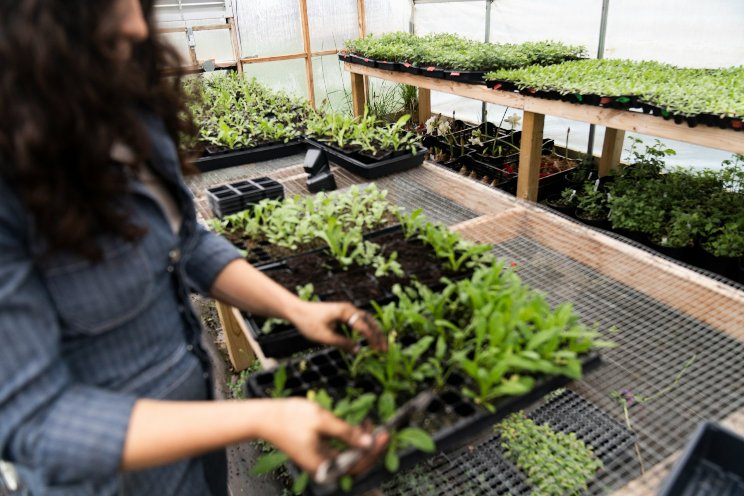The future of AI in the medical cannabis sector
Added on 21 June 2024

While both We Decode and Genetica Flora AI are at the forefront of integrating AI into the medical cannabis sector, they have distinct approaches and functionalities.
We Decode leverages genetic testing to provide personalized wellness reports that guide medical cannabis usage. By analyzing a patient's genetic profile, We Decode can offer precise phytocannabinoid recommendations, dosing guidelines, and insights into potential drug-to-drug interactions. This personalized approach ensures that each patient receives a treatment plan tailored to their unique genetic makeup, maximizing therapeutic benefits while minimizing side effects.
One of the significant partnerships We Decode has formed is with Endocanna Health. Together, they focus on supporting the veteran community by providing DNA testing and biomarker mapping. This collaboration aims to optimize cannabis therapy for veterans, addressing their specific health needs and enhancing treatment outcomes through personalized recommendations.
Genetica Flora AI is another platform making significant strides in the medical cannabis industry. This AI-driven tool empowers both patients and prescribers by providing comprehensive scientific reference reports. These reports enable prescribers to make informed decisions about cannabis treatments, ensuring confidence in prescribing the most effective therapies.
According to CannaReporter, this platform also helps retailers, dispensaries, and clinics understand which products to stock, ensuring consistency and quality through data-driven insights. By internationalizing these products and providing detailed data, Genetica Flora AI aims to improve the overall health outcomes for patients and streamline the supply chain for medical cannabis products.
Although the introduction of those two sophisticated AI tools sounds promising, it’s important to take innovation with a grain of salt and ask a few important questions, among which the following : could AI technology actually benefit the medical marijuana sector or is it just another sensationalist pipe dream of the industry?
At the moment, We Decode is actively used in the UK, particularly benefiting veterans. The platform partners with organizations like Endocanna Health to provide DNA testing and personalized wellness reports. These reports help veterans, many of whom suffer from PTSD, by offering tailored cannabis treatment plans based on their genetic profiles. This ensures that the cannabis strains and dosages recommended are specifically suited to their individual needs, optimizing therapeutic outcomes and minimizing adverse effects. This initiative is part of broader efforts to improve the health and well-being of veterans through precise, data-driven cannabis therapies.
Genetica’s Flora AI platform, including its Flora Match and Flora OS products, is utilized by several cannabis dispensaries and retailers across Europe, with significant adoption in Germany. For example, Flora Match leverages over 650 million data points to provide personalized product recommendations, considering factors such as dietary habits, medical conditions, and desired effects. This AI-driven tool enhances the retail experience by empowering store employees with precise recommendations and fostering customer loyalty.
In Germany, dispensaries have integrated Flora AI to streamline operations and improve profitability. The platform’s ability to analyze vast datasets helps retailers maintain high-quality standards and meet consumer demands more effectively. Additionally, Flora AI’s application is expanding to other European markets, offering similar benefits by enhancing the precision and reliability of medical cannabis products and services.
These examples demonstrate how AI is being practically applied in the medical cannabis sector across Europe, improving patient outcomes and optimizing business operations.
The integration of artificial intelligence (AI) into the medical cannabis sector offers promising advancements across various domains, including cultivation, research, personalized medicine, regulatory compliance, and education. While the potential of AI should be viewed with realistic optimism, at least for the foreseeable future, its current applications are already demonstrating tangible benefits.
At this point in time, AI is making significant contributions to the medical cannabis sector by improving cultivation practices, supporting research, enhancing personalized medicine, ensuring regulatory compliance, and advancing education. While it is essential to maintain realistic expectations, the current applications of AI in this field are already showing positive results. As AI technologies continue to evolve, they will likely play an increasingly important role in driving innovation and improving patient outcomes in the medical cannabis industry. By focusing on practical applications and ongoing advancements, the future of AI in medical cannabis looks promising, offering benefits that enhance the overall effectiveness and integration of cannabis-based treatments in healthcare.
Author: DANIEL CIUREA
More news















